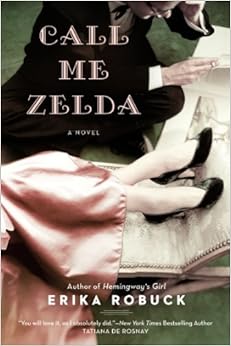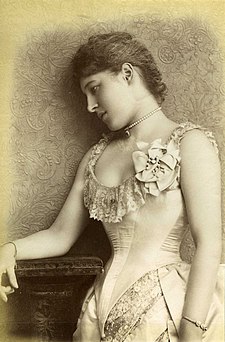So I'm back from the great beyond. So it is rather fitting that I should do another post on portraits of long dead people.

I am currently reading "Georgiana, Duchess of Devonshire" by Amanda Foreman. I've always been a little bit fascinated by the Duchess and so I should be ashamed that I have never read this excellent biography. I generally have a short attention span when it comes to non-fiction, but Foreman has a very engaging style that has kept me reading.
As I have been reading, I've been looking up the various personages mentioned in the book. Which of course has lead me to looking up their portraits. I have written before about my love for portraits of long dead folks, but I thought I would share some of the interesting stories that I've come across while reading.
 |
Elizabeth Lamb, Lady Melbourne
by George Romney |
Most people do not know that Georgiana was amateur author herself; she anonymously wrote and published
The Sylph. Though it was not too anonymous as it was an open secret that she wrote it. Many of the instances in the novel (which was a scandalous, behind-the-scenes depiction of the
Ton) were drawn from real stories. It was also a rather serious and jaded commentary on the pitfalls of aristocratic marriages. Of course Georgiana's own marriage was not a success and this apparently was the norm during the 18th century. Many marriages were dynastic arrangements used to unite families in wealth, property, and influence. Unlike the staid morals of the 19th century, Georgian Britain was somewhat more relaxed when it came to extramarital affairs. Both men and women indulged, though the ladies were expected to provide their husbands with male heirs before taking a lover. One example of this was Lady Elizabeth Lamb, Vicountess Melbourne. If you remember my
Historical Hotties series, I profiled Lady Melbourne's son, William Lamb, later prime minister of England during Queen Victoria's reign (and husband to the ill fated Lady Caroline Lamb). Lady Melbourne was one of Georgiana's inner circle, a kind of mentor, though morality was definitely not her strong suit. In fact she has a rather scandalous reputation. Her husband was a womanizer and once she had presented him with their first son, Peniston, she was off to the races. Among her many lovers were Lord Coleraine and Lord Egremont. In fact it was reported that Coleraine sold her to Egremont for £13,000, and that both she and her husband benefited from this arrangement. Hmmm.... Elizabeth's next three children are widely regarded to have been Egremont's (including Lord Melbourne the prime minister), and her son George is thought to have been the progeny of the Prince of Wales, who served as his godfather.
 |
| Lady Emily Cowper, later Lady Palmerston |
Interestingly enough, Lady Melbourne's daughter Emily emulated the ways of her mother. After her marriage to the decidedly dull
Lord Peter Cowper (who was rather good looking if you ask me), she became the mistress of
Lord Palmerston, future prime minister. He was quite tasty as well but he apparently knew it as he was busy sleeping with Lady Cowper's friends at Almack's before he moved on to her bed.
But perhaps Lady Emily was the "one." In fact her mother counseled her on her death bed that she should remain true to her paramour. And Emily did. Following her husband's death in 1837, she and Lord Palmerston married even though they were both in their 50s. Their remaining years together were reportedly very happy. Emily had three sons during her first marriage, so she certainly did her duty. Her last child, a daughter named Emily, was apparently Palmerston's. But her cloudy paternity did not keep her from marrying an earl when she came of age.
 |
Lady Elizabeth Stanley
by George Romney |
Lastly, a rather sad story related by Georgiana's correspondance was the disgrace of Lady Elizabeth Stanley, Countess of Derby. I'm sure it was a cautionary tale that was most likely whispered about for years following its conclusion. Lady Elizabeth left her husband and three children to run off with the Duke of Dorset, with whom she had been having an affair. I would hope that she was violently in love with him. She stayed quietly in the country while society decided how to deal with her. Georgiana was called upon her friends to visit the poor woman, but she eventually capitulated to her parents' demands to not receive the disgraced countess. Lady Elizabeth certainly paid for her recklessness. Her husband refused to divorce her, thus consigning her to social oblivion. Had she been allowed to married the Duke, she may have been able to recover some of her former social standing. Instead, she made off with another lord to Italy, where she died at the relatively young age of 44.
And the other players in the sordid affair? Well the Earl of Derby went on to marry the lovely actress Elizabeth Farren. And apparently all was forgiven in his book, as the Duke of Dorset was continually received by the earl. He went on to bed other women (including Georgiana's "frenemy" Lady Bess Foster) and eventually married Arabella Diana Cope. Fortunately for her, the Duke died a few years later and she became a very wealthy woman. No rest for the wicked, as they say...
As an interesting aside, Lady Sarah Lennox was also cited as a source of this story in the book. Lady Sarah was the subject of a similar scandal some years before when she indulged in an affair with Lord William Gordon. She became pregnant by him and after giving birth to a girl (who was surprisingly claimed by Sarah's husband Charles Bunbury), she ran off with the baby to live with Gordon. Though Bunbury granted her a divorce, her liaison ended and she was treated as the scandalous relation by her family for many years before finding happiness with a British army officer.
 I'm taking a break from this week's post since it is Christmas Eve. I'm busy baking up a storm now that I have decent kitchen to do so. The Christmas lights are blinking and my record player turning out the sounds of Bing Crosby's "White Christmas".
I'm taking a break from this week's post since it is Christmas Eve. I'm busy baking up a storm now that I have decent kitchen to do so. The Christmas lights are blinking and my record player turning out the sounds of Bing Crosby's "White Christmas".















